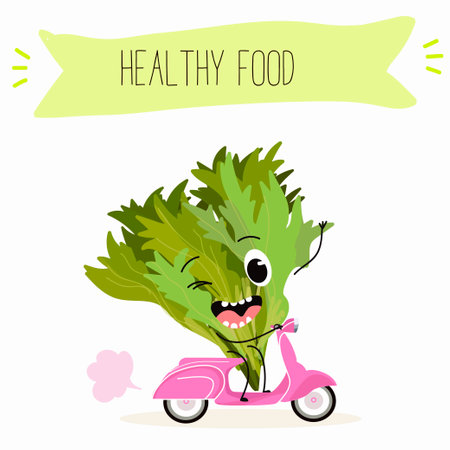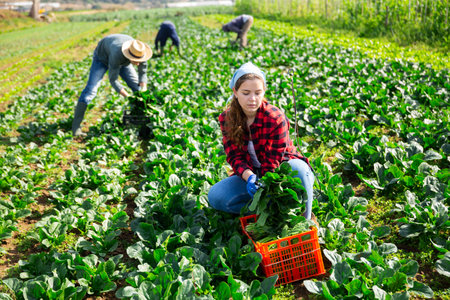1. Understanding Mindful Eating in the British Context
Mindful eating, while a global concept, takes on a distinct flavour within Britain’s unique culinary and cultural landscape. At its core, mindful eating involves being fully present during meals, appreciating each bite, and considering the origins and impacts of what we consume. In the UK, this approach is shaped by longstanding traditions such as leisurely Sunday roasts, afternoon tea rituals, and the value placed on seasonal produce from local markets. There is a growing public consciousness around food provenance, with many Britons showing renewed interest in local, organic, and sustainable ingredients. This attitude is reflected not just in trendy farm shops or farmers’ markets but also in everyday choices—like opting for British-grown apples over imported varieties or supporting local dairies. Mindful eating here means respecting food heritage, minimising waste, and making ethical decisions that align with environmental stewardship. By weaving these cultural practices into daily life, Britons are redefining what it means to eat mindfully in a modern context.
2. Celebrating Local British Produce
When we talk about mindful eating in Britain, one cannot overlook the importance of supporting local farmers and savouring the rich diversity of regional produce. Choosing food grown close to home is not just a matter of taste; it’s a conscious step towards sustainability and community resilience. The UK boasts a vibrant tapestry of farms, orchards, and fisheries, each contributing unique flavours and traditions to our tables.
The Value of Seasonal Eating
Embracing seasonal produce means enjoying fruits and vegetables at their natural peak—when they are freshest, tastiest, and most nutritious. This approach reduces the carbon footprint associated with long-distance transport and storage. In Britain, eating seasonally can be a delightful culinary adventure throughout the year. Here’s an example of what’s available across the seasons:
| Season | Typical British Produce |
|---|---|
| Spring | Asparagus, rhubarb, spring greens, lamb |
| Summer | Strawberries, broad beans, courgettes, mackerel |
| Autumn | Apples, blackberries, squash, game meats |
| Winter | Kale, leeks, root vegetables, mussels |
Championing Regional Specialities
The UK is home to a remarkable array of regional foods that reflect centuries-old agricultural practices and local heritage. From Cornish clotted cream to Yorkshire forced rhubarb and Scottish wild salmon, these specialities are not only delicious but also tell the story of their origins. Supporting such products helps maintain traditional skills and preserves local economies.
Why Supporting Local Matters
- Reduces food miles and environmental impact
- Keeps money circulating within rural communities
- Encourages biodiversity by sustaining heritage breeds and plant varieties
How to Start Supporting Local Producers
- Visit farmers’ markets or join a local veg box scheme
- Look for country-of-origin labels in shops and supermarkets
- Seek out restaurants championing British ingredients on their menus
Mindful eating in Britain is as much about awareness as it is about enjoyment. By celebrating local produce and the people who grow it, we build healthier diets and stronger communities.

3. The Appeal of Organic Food in the UK
Organic food has gained significant traction across Britain in recent years, reflecting a mindful shift in both consumer habits and agricultural practices. At its core, ‘organic’ in the UK refers to produce grown without synthetic pesticides, artificial fertilisers, genetically modified organisms (GMOs), or routine use of antibiotics in livestock. The Soil Association and other certifying bodies ensure rigorous standards are met before any product can carry the organic label.
The growth of organic farming is evident in the expanding presence of organic products in British supermarkets, farmers’ markets, and independent shops. According to the Soil Association’s annual reports, the UK’s organic market has experienced steady growth for over a decade. This increase is not just a trend; it is driven by a collective awareness of environmental impact, animal welfare, and health considerations.
From an environmental perspective, organic farming promotes biodiversity, improves soil health, and reduces water pollution by avoiding harsh chemicals. Health-wise, many Britons are drawn to organic foods for their perceived lower pesticide residues and higher nutritional value. While scientific debate continues about the extent of these health benefits, consumers often report feeling more confident about what they are eating when choosing organic options.
Mindful eaters in Britain are increasingly motivated by transparency and traceability—knowing where their food comes from and how it is produced. This aligns with broader sustainable food movements and the desire to support local farmers who adhere to ethical and eco-friendly methods. Ultimately, embracing organic food in the UK is not just about personal wellbeing; it is about making considered choices that contribute positively to society and the planet.
4. Sustainability in British Food Choices
In recent years, sustainability has become a cornerstone of mindful eating across Britain. Both consumers and producers are increasingly aware of the environmental impact of their food choices, making conscious efforts to reduce waste, lower carbon footprints, and support ethical practices. This shift is visible in everything from supermarket shelves to local farmers’ markets, where British shoppers look for organic labels, minimal packaging, and locally-sourced products.
How Are Britons Prioritising Sustainability?
Across the UK, there’s a growing demand for traceable food origins and transparent supply chains. Many households now opt for seasonal fruit and veg, reducing reliance on air-freighted imports. Producers are responding by adopting regenerative farming techniques, investing in renewable energy, and cutting down on single-use plastics.
Practical Tips for Everyday Sustainable Eating
For those keen to integrate sustainability into daily life, small actions can make a big difference. Here’s a practical breakdown:
| Sustainable Practice | How To Implement | British Example |
|---|---|---|
| Buy Local | Shop at farmers markets or choose UK-grown produce in supermarkets | Kentish strawberries or Cornish potatoes |
| Choose Organic | Look for Soil Association certified products | Organic milk and eggs with clear labelling |
| Minimise Food Waste | Plan meals, use leftovers creatively, compost food scraps | Love Food Hate Waste campaign tips |
| Avoid Excess Packaging | Select loose fruit & veg; bring your own bags/containers | Zero-waste shops in London or Edinburgh |
| Support Ethical Brands | Check company credentials for fair trade or animal welfare standards | Brands like Abel & Cole or Riverford Organics |
The Path Forward
Sustainable eating is not about perfection but progress. By making intentional choices—however small—we collectively shape the future of British food culture. Whether it’s swapping imported avocados for homegrown apples or championing refill shops over single-use plastics, each action contributes to a more resilient and eco-friendly food system.
5. Navigating UK Food Labels and Certifications
One essential part of mindful eating in Britain is understanding the meaning behind the various food labels that populate supermarket shelves and local market stalls. With so many certifications and assurances, it can feel overwhelming at first, but demystifying these symbols is a crucial step in making informed choices that align with sustainability, ethics, and health. In this section, I’ll break down three of the most prominent British food labels: Red Tractor, Soil Association, and Fairtrade.
Red Tractor: Assuring British Standards
The Red Tractor label is one you’ll spot often on meat, dairy, and fresh produce. It’s a comprehensive assurance scheme that covers food safety, animal welfare, traceability, and environmental protection. When you see the Red Tractor logo, you know the product has been produced entirely in the UK to rigorous standards. For mindful eaters, this means supporting local farmers while trusting that your food has passed independent checks for quality and responsible production practices.
Soil Association: The Organic Benchmark
If organic eating is your priority, the Soil Association certification is your go-to marker. This symbol guarantees that food meets strict organic farming criteria—no synthetic pesticides or fertilisers, higher animal welfare standards, and careful management of wildlife habitats. It’s not just about what’s absent; it’s about active stewardship of soil health and biodiversity. Choosing Soil Association-certified products contributes to a more sustainable agricultural system and supports farms working in harmony with nature.
Fairtrade: Putting People First
While not exclusively British in its scope, Fairtrade is widely recognised across the UK. This label assures consumers that farmers and workers in developing countries receive fair prices and decent working conditions. For those practising mindful eating with a global conscience, Fairtrade products like bananas, chocolate, tea, and coffee offer an ethical option that extends positive impact far beyond Britain’s borders.
Making Sense of Labels for Mindful Eating
Learning to read these labels isn’t just a box-ticking exercise—it’s an act of engagement with our food system. Each certification provides a different lens through which to view our choices: local support (Red Tractor), environmental impact (Soil Association), or social justice (Fairtrade). By pausing to consider these factors as part of our daily shopping routine, we contribute to a more thoughtful and responsible food culture in Britain.
6. Everyday Mindful Eating: Tips for British Households
Bringing Mindful Eating Home
Adopting mindful eating practices in your daily routine doesn’t require grand gestures; it starts with small, intentional choices. In Britain, where tea is more than a drink and Sunday roasts are a cherished ritual, integrating mindfulness can naturally complement local traditions. Begin by taking a moment before meals to appreciate the effort behind every ingredient—whether it’s root vegetables from a nearby allotment or free-range eggs from the farmers’ market.
Shopping Locally and Seasonally
Support your high street shops, farm shops, and local markets whenever possible. British produce like Kentish strawberries in summer or Lincolnshire potatoes in winter offer not only superior freshness but also reduce food miles. Check labels for UK-grown fruit and veg, and make it a habit to ask your butcher or fishmonger about the provenance of their products.
Reducing Food Waste at Home
Embrace the thrifty British tradition of using leftovers creatively. Bubble and squeak, cottage pies, or even classic bread and butter pudding are great ways to use up surplus ingredients. Plan meals ahead and store perishables properly—a little organisation goes a long way toward minimising waste.
Making Sustainable Choices Easy
Consider joining a local veg box scheme or community-supported agriculture group to ensure a steady supply of seasonal, organic produce. Opt for products certified by trusted UK standards such as Red Tractor or Soil Association Organic. When buying fish, look for the Marine Stewardship Council (MSC) label to support sustainable British fisheries.
Cultivating Mindful Moments
Mealtimes can be an opportunity to slow down—set aside screens, savour every bite, and engage in conversation. Try setting the table with care, whether it’s for a solo breakfast or a family dinner. Appreciating the journey of your food from field to fork fosters gratitude and connection to both your community and environment.
Inspiring Others Through Example
Your mindful choices can influence friends and family too. Share recipes that celebrate local ingredients or invite others to join you on a trip to the farmers’ market. By championing mindful, local, and sustainable eating at home, British households can collectively nurture both wellbeing and the planet—one thoughtful meal at a time.


